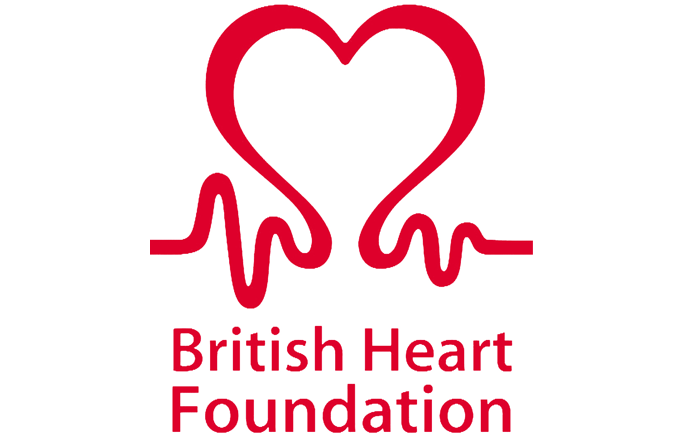British Heart Foundation Critical Reasoning Test
British Heart Foundation looks for employees with a high analytical ability. Applicants have to pass a critical thinking test before being offered a position.
British Heart Foundation use the following tests in their selection process:
Jump to:- About British Heart Foundation Critical Thinking Exercises
- British Heart Foundation Application Process Stages
- British Heart Foundation Critical Thinking Exercise Questions
- Critical Thinking tests and who uses them
- What you should know before taking your Critical Thinking test
- Different types of critical thinking tests
- Answered questions
About British Heart Foundation Critical Thinking Exercises
Critical Thinking Exercises are a fair and objective way for British Heart Foundation to assess a wide range of applicants, each having different experiences and different qualifications. By analysing the results of a standardised critical thinking exercise, British Heart Foundation are able to quickly see which candidates are suitable for the role and which are not. This sort of information about candidates’ skills is difficult to glean from interviews and qualifications alone, so they use professional psychometric tests.

Often, British Heart Foundation will ask applicants to take a critical thinking exercise online, which you can take from home. When the critical thinking exercise is used early on in the application process like this you will have to achieve a minimum score before you progress to the next round (typically a score in the top 50% of applicants is required however this does vary role to role). Further along in the selection process you might be asked to attend an assessment centre or interview where you will be asked to sit a critical thinking exercise again. This is so British Heart Foundation can verify the person scoring highly in the test is indeed the person applying for the job.
| Assessment section | Recommended Practice Pack |
|---|---|
British Heart Foundation Critical Thinking Test | Critical Thinking Test Pack
|
All British Heart Foundation tests | Bundle Pack
|
British Heart Foundation Application Process Stages
Stage 1
| Application | You will complete an application form online via their graduate website. The British Heart Foundation are looking for graduates with a 2:1 or 1st class degree. |
|---|
Stage 2
| Online Aptitude Test | Critical Thinking Exercise | Once your application has been reviewed and successfully passed screening, an online assessment will be employed. Once again, each region will operate under their own system, but you can expect to take part in a Critical Thinking exercise. |
|---|
Stage 3
| Video interview | Upon passing the Critical Thinking exercise, you will then be asked to take part in a video interview. Typically, in a video interview you will be given a set of questions to respond to. You will then use the software provided to record your responses to these questions. Responses are typically 30 seconds to a minute long. Use the freedom here to plan your responses to the questions well, even if that means redoing the recording. You will often get the opportunity to view and check the recording before submitting it. Ensure that your answers are relevant to the questions asked. Use our video interview practice zone if you are worried about this stage of the application. |
|---|
Stage 4
| Assessment Centre | For the final stage of the process you will be invited to an assessment centre and asked to take part in 3 exercises:
|
|---|
Join those now working at top companies
Don't settle for 'try again next year'. Let us help you pass employer tests first time.
Try now for free
British Heart Foundation Critical Thinking Exercise Questions
Like most critical thinking tests, the one used by the British Heart Foundation look at your "ability to consider a range of information derived from many different sources, to process this information in a creative and logical manner, challenging it, analysing it and arriving at considered conclusions which can be defended and justified." The critical thinking test will be assessing your speed and accuracy. The answers are multiple choice and you should try to work quickly within the time limit, but also accurately. Negative marking is unlikely to be used but do not guess answers, as this will show up in your accuracy score. Sometimes you will find that you can make a best guess estimate by deducing that some of the answer options are incorrect. This approach to critical thinking tests will come with practice, and you will become familiar with the type of critical thinking tests used by companies, such as the British Heart Foundation.
Critical Thinking tests and who uses them
Companies are using critical thinking tests more and more in their application process that candidates must go through. Critical thinking tests are favoured when the role being recruited for requires critical analysis of arguments on a regular basis. A person's score in a critical thinking test is a good indicator of their ability to structure a sound, solid arguments, analyse and synthesise available information, and to recognise assumptions and inferences. This is particularly important in legal positions.
British Heart Foundation use critical reasoning exercises as part of their recruitment process to help them select the best candidates for a particular role.
So as a graduate or senior candidate applying for a job at the British Heart Foundation you might feel like the critical thinking exercise is an unnecessary hoop to jump through. But, you should bear in mind that the British Heart Foundation are asking you to complete the critical thinking exercise exercise as much for your own benefit as theirs; if you are not suitable for the role, a psychometric test will usually identify this. Research has shown that psychometric tests, such as those used by the British Heart Foundation, are a better predictor of job performance than traditional selection metrics such as level of degree achieved.
What you should know before taking your Critical Thinking test
The most commonly employed critical thinking test is known as the Watson-Glaser Critial Thinking Assessment. The Watson-Glaser is split into 5 different section. Each section asks questions in a particular style and will expect you to reason slightly differently to reach the correct answer. The 5 sections are listed and explained below:
Assumptions:
In these questions a statement will be presented and the candidate will have to decide if an assumption has been made in making the statement. For example in the statement “only people earning a high salary can afford a fast car” it is assumed that fast cars cost more than not fast cars (this is just one of many assumptions implicit in the statement). An assumption is something someone effectively takes for granted. Statements are given for the individual to read and they are then followed by several proposed assumptions. The candidate has to select whether an assumption has or has not been made.
Analysing arguments:
Candidates will be provided with a given scenario i.e. “Should the government pay student’s tuition fees?” They are subsequently provided with a list of arguments for or against the scenario presented. The candidate will need to assess if each argument is strong or weak, based on how relevant it is and how well it addresses the question. The argument is considered to be strong if it directly relates to the question or statement, and weak if it is not directly related to the question or statement.
Deductions:
Candidates will be provided with a passage of information and candidates will need to evaluate a list of deductions made based on that passage. If one cannot deduce a particular statement from the passage, then that deduction does not follow, and the candidate must select which deductions follow and which do not follow. The answer must be entirely based on the statements made and not on conclusions made from one’s own knowledge.
Inferences:
In this section candidates will be provided with a passage of information on a scenario. A subsequent list of possible inferences will follow, and candidates will be asked to rate if they are true, false, possibly true, possibly false or whether it is not possible to say based on the information in the passage.
Interpreting Information:
A paragraph of information will be provided to the candidate, with a list of possible conclusions. Candidates will need to interpret the information in the paragraph and decide if each conclusion follows based on the presented information. Once again the decisions must solely be based on the information given.
Different types of critical thinking tests
Most questions in most critical thinking tests follow a standard format displaying written information, the question and answer options on screen. These can be arranged differently, but each test will stick to the same layout throughout. The written information will usually be a single sentence, or a longer passage of text consisting of a few sentences. The question text may contain extra information which adds to the written information that's given. This might also be necessary to answer the question correctly. Lastly, the answer options are almost always multiple choice. Multiple choice answers can vary, however. You may have 2, 4, or 5 options to pick from. The more answer options to pick from, the slimmer the chances are that you can obtain the correct answer by guessing and the more that you have to eliminate as being the correct answer.
Some publishers will have less subtle variations in their test from what's described here. Cappfinity for example, will ask you more than one question at a time. Test Partnership's tests will use logical syllogisms. Test types by different publishers are explained here in more detail.
Answered questions
Are these tests suitable for the British Heart Foundation?
Yes. British Heart Foundation use critical reasoning exercises to assess applicants in the recruitment process. The practice tests we provide have been designed to mimic the Watson-Glaser critical thinking test style to create an environment similar to the real assessment. This provides you with confidence that the questions you practice with us now are an accurate reflection of the real assessment.
How difficult are your tests?
The same difficulty as real tests. Generally real employer selection tests don't differ that much in terms of difficulty which is why they compare your score against norm groups. Our practice tests are pitched roughly at graduate level, but this means they are actually suitable for preparing for all levels of job: entry; apprentice; graduate; senior; director.
Are they compatible with my Mac / Tablet / Phone?
Yes, and PC, and Linux and smartphone and Android and...everything. Our practice tests will run on all systems and they are responsive so they will work well on tablets and smartphones too!
How many times can I take the tests?
Unlimited. You can take our practice tests as many times as you like; there is no limit. But to be honest, after taking the same test a few times you start to remember the answers, so that’s why we have lots of tests.
